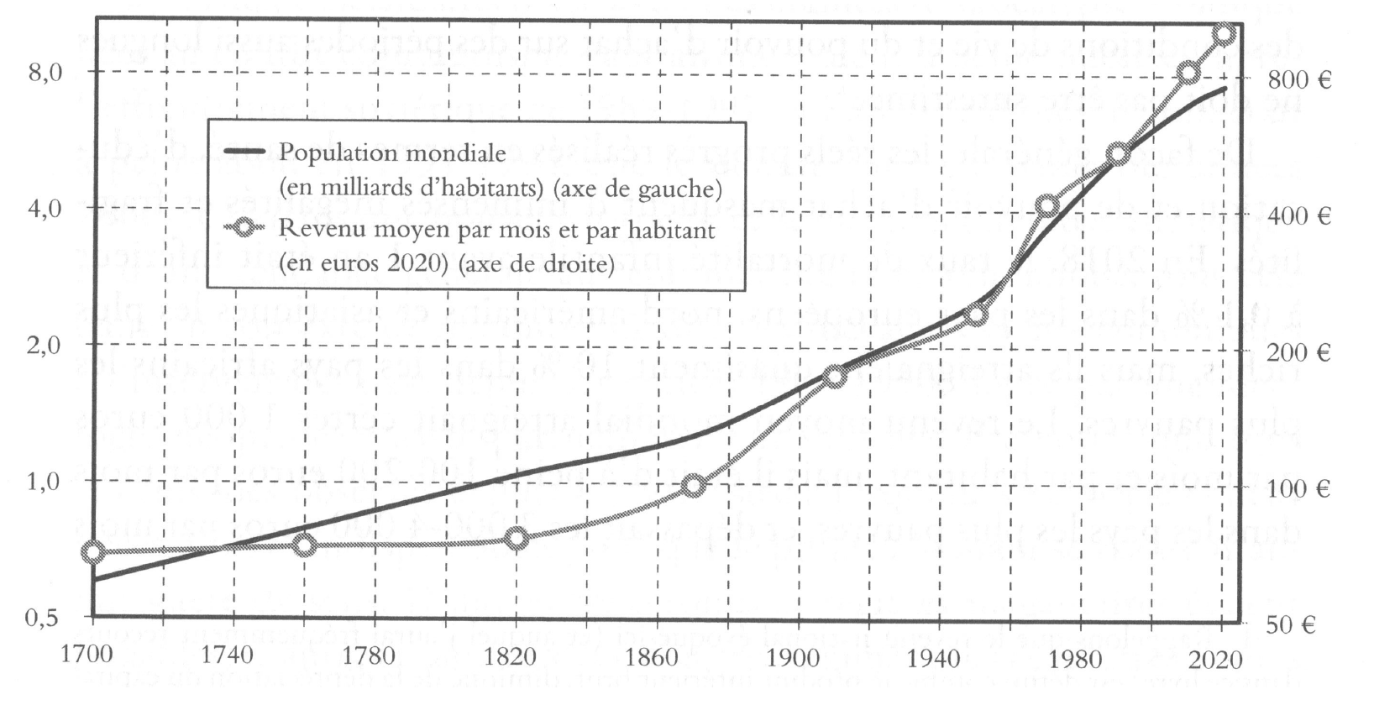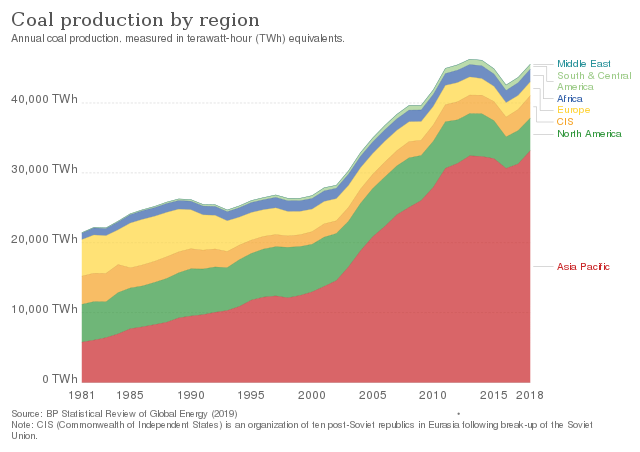

Energy transition is everywhere in the media, be it to produce electricity or steel or to power cars, we have a full ministry in France. It is the key concept behind the techno-enthusiasm that believes innovation will allow us to maintain our way of life in the West, attain it for the advancing economies, repeating, though sustainably, the massive tidal wave that brought wealth, between the 17th and the 20th centuries, to a rather so far uneventful world, in terms of growth, that is. Illustration with this graph, from Thomas Piketty’s “Capital and Ideology”, showing the increase in world population (left axis, billion) and average revenue per capita (right axis, €) since 1700, clearly with an inflexion point in the 19th century:

But more and more researchers, deep diving into the details of the industrial revolutions, now believe new energies were additive, rather than just following a Schumpeterian destructive creation approach, new and old forms sort of cooperating with each other, like the vacuum cleaner and the broom. A concrete example: in Western Europe, in the middle of the 19th century, way after coal and steam had taken over to mechanize the nascent industry, human and animal labor, the legacy energy since the dawn of mankind, still provided half of the total energy, most of the rest being supplied by wood (not only for heating and cooking, also for coal mine galleries prop woodwork), a testimony to societies remaining massively agricultural. And there were more wind and water mills in the world in 1900 than in 1800, proof that renewable energies also grew in the 19th century, alongside fossil coal.
King Coal really started its preeminence in the energy domain at the end of the 19th century, when capital overtook labor as the growth engine, the 20th century seeing a massive 20-fold increase in production, to the present 8 Gigatons every year. Same story for crude oil, which importance grew from nearly nothing early in the 20th century, peaking around 5 Gigatons per year. Oil did not replace coal at all, just focused on transport and chemicals, when coal remained the global source for electricity, in Asia especially, but also for the manufacturing of cars, through the production of steel:

Meanwhile, human and animal labor remained significant in the less advanced countries during most of the 20th century, before globalization inflicted the possibly final and fatal blow to resources and climate. Complementarity, not transition, each energy specializing in end-uses where it makes sense, technically, economically and socially, but also from the important points of view of locality, infrastructure, logistics, industrial policy, plant size (and economy of scale).
Back to the original question of the title, shall we have an energy transition in the 21st century? Unfortunately, history cannot help us to answer as it seems there never was in the past anything close to such a transition, precisely from one energy to the next one. If it is an energy transition we must have, we have to invent the modus operandi, and a close observation of the last decade, coupled with the on-going multi-faceted crisis of the beginning of this decade, pandemic, inflation, war in Eastern Europe, does not bode well.
From a political, if not geopolitical, point of view, it may seem less risky to organize the decarbonation of existing energies, in a sort of global and local ecological planification, encompassing energy, ecology, economy, social and societal aspects. Slow, unfortunately, but optimizing the recourse to local raw materials, like biomass or wind depending on the region, existing distribution infrastructure, existing equipment, nimble rather than embarking on multi-billion or trillion dollars or euros investment programs in emerging technologies and completely new supply chains, exhausting finances already well stressed from the requirements of social justice and maintenance of the status quo. In essence, slowly (too slowly?) cutting out, subtracting, fossil energy from everyday life, when the previous centuries added those. Possibly the best compromise in front of climate change?
Philippe Marchand is a Bioenergy Steering Committee Member of the European Technology and Innovation Platform (ETIP).